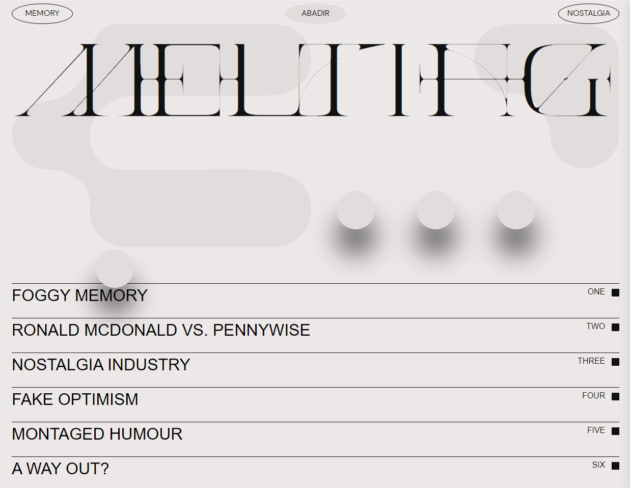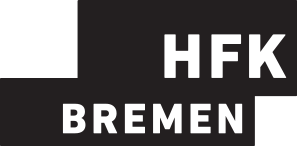Melting

This master’s thesis consists of a radio piece and a written work that deals with collective and personal memory in late capitalism. The radio piece, titled “Melting,” echoes moments of the past in a fragmented and blurred manner, arranged in a non-linear structure using collage techniques. The work is not a celebration of the past, submitting to nostalgia in the form of sound quotations that seek to revive the “glorious old days.” Instead, the project seeks to artistically and critically explore the implications of late capitalism’s nostalgia. It is a call to regain control over the past and connect with people through shared experiences and collective memory manifested in a mesh of sounds. Finally, practice and theory come together in the form of a webpage where sound and written text create yet an additional layer of meaning and analysis.
The work is an intersection between the collective memory that late capitalism feeds on and my personal memory. The result is a collage of arranged audio material, micro-edited fragments from different eras that are not tied to a geographical region. By fusing some 350 excerpts from television and radio archives, found film footage, commercials, forgotten songs, movies, pop trends, internet culture, and other sound sources that whisper or shout in the listener’s ear, “Melting” engages with the romanticized consumerist vision of the past as presented by large corporations, capitalist entities, and authoritarian regimes. I also included excerpts from podcasts and sessions by theorists Grafton Tanner, Mark Fisher, and Nick Srnicek, whose theoretical frameworks are related to the concept of the radio piece. To complement the work, I provide my analysis through the narration of textual fragments from my theoretical endeavor by means of a female voice.
My aim in this master’s thesis is to create an interchange between theory and practice: 1) by bringing theoretical layers to the sound practice and 2) by allowing the sound material in the piece to shape my theoretical perspective. Writing the text serves not only to conceptualize the radio piece, but also as a tool to create a sonic narrative and flow for the radio piece. The sonic narrative includes sound materials that have personal or collective meaning, and the flow refers to the production techniques, that is, how I cut, combine, deconstruct, re-contextualize, edit, and manipulate these sonic materials. Conversely, the piece materializes as I write the text, theorizing about the original sound material.

More info on the project, check the webpage
https://abadir-melting.netlify.app/
Also released as podcast episodes on sound&researchcreation

